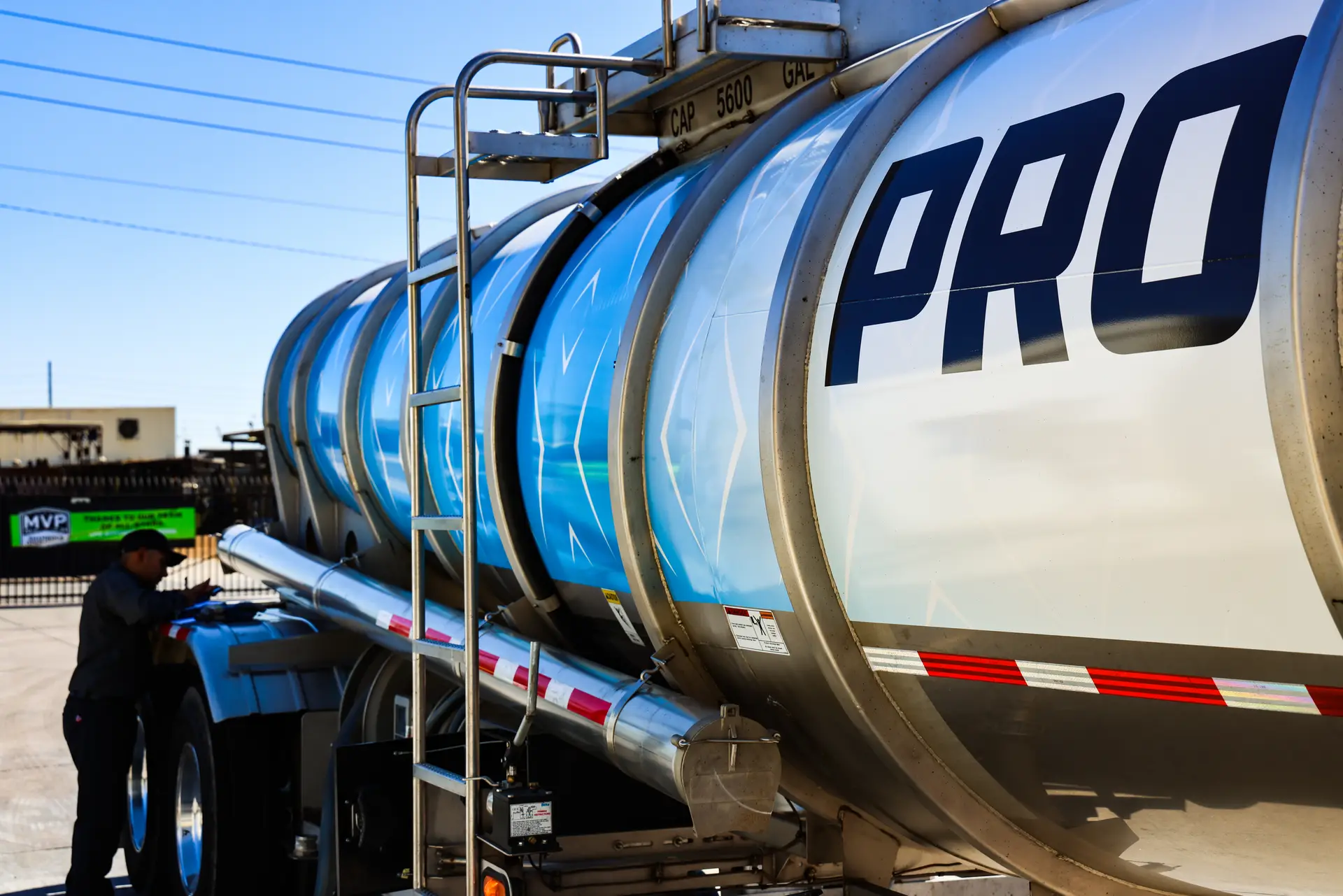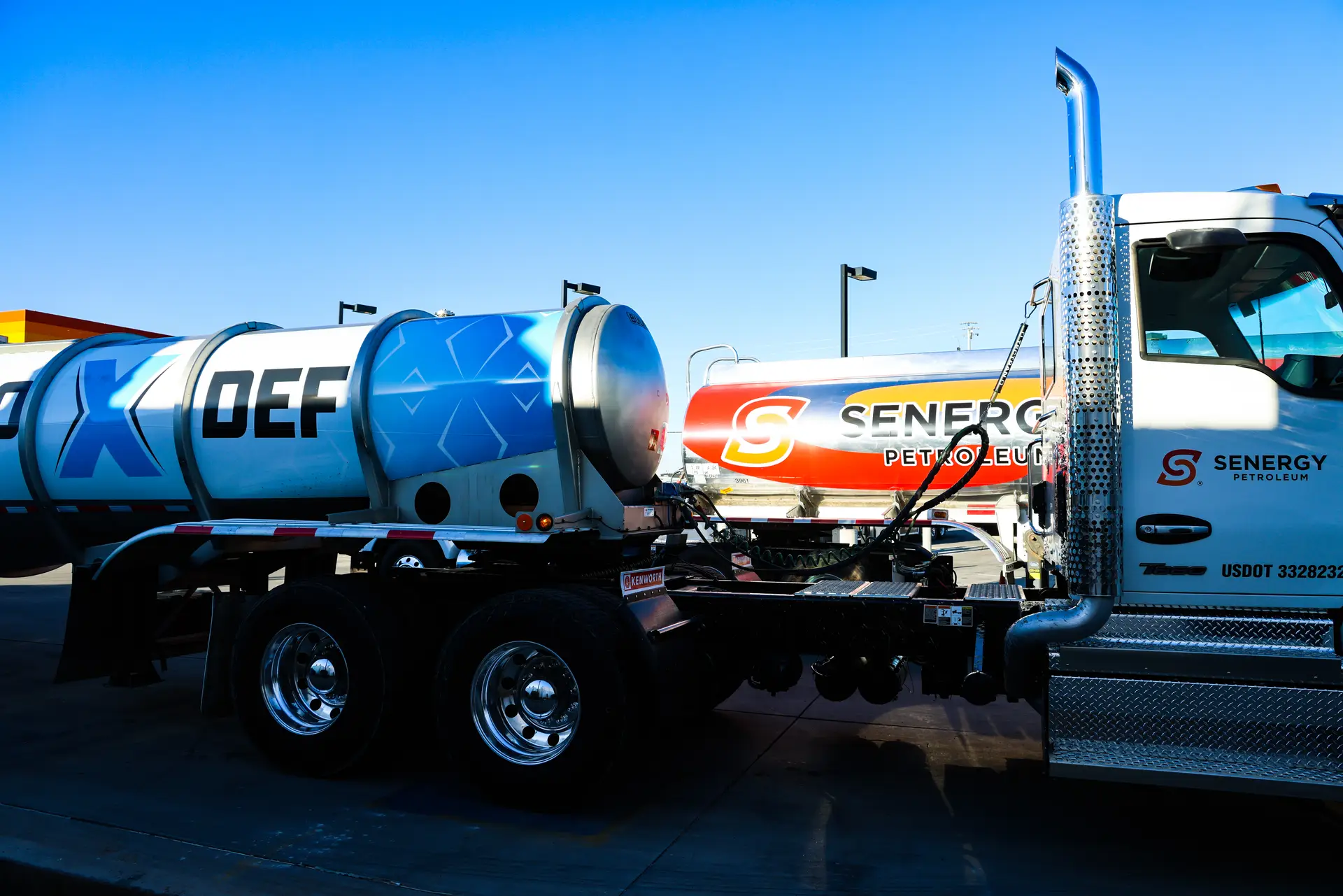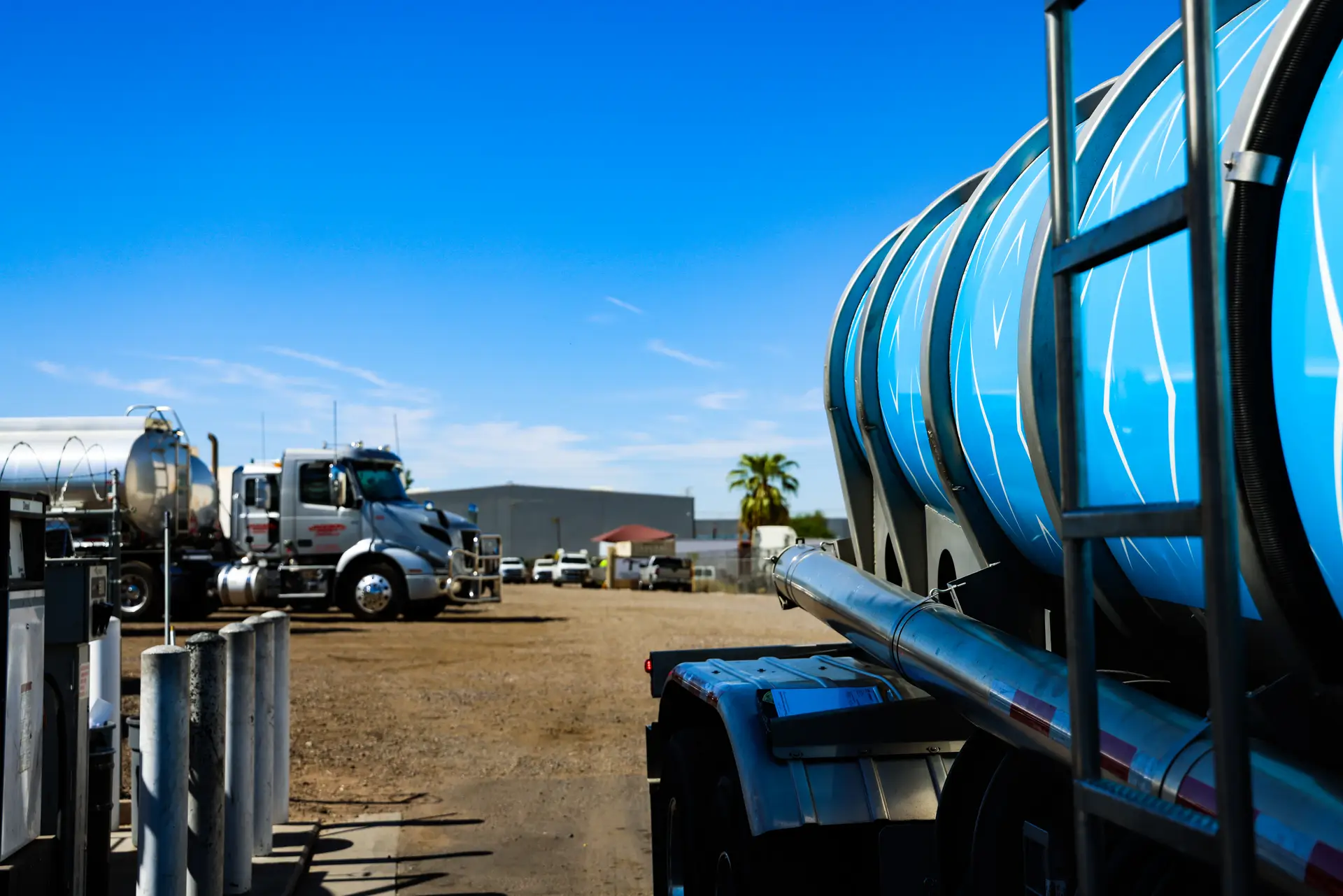How DEF Storage Conditions Affect Performance
Diesel Exhaust Fluid (DEF) is a critical component for modern diesel engines, directly impacting engine performance and compliance with operational standards. Its effectiveness relies on proper storage and careful handling. Improper storage or contamination can degrade DEF, shorten its shelf life, and reduce engine efficiency.
Maintaining high-quality DEF requires more than simply keeping a tank full. It involves monitoring temperature, preventing contamination, using clean dispensing equipment, and properly maintaining storage tanks. Adhering to DEF handling best practices ensures every liter remains effective, reducing unnecessary engine wear and minimizing downtime. Fleets and vehicle operators that neglect proper DEF management risk costly repairs and decreased engine performance.
Why Proper DEF Storage Is Critical
DEF is highly sensitive to its storage conditions. Exposure to sunlight, heat, or contaminants can degrade the fluid, shortening its shelf life and compromising engine performance. Even small impurities, such as dust, water, or other chemicals, can disrupt its chemical balance and lead to costly maintenance issues.
Proper DEF storage safeguards the fluid’s stability, which is crucial for construction fleets, long-haul trucks, and any diesel vehicle operating in variable conditions. Storing DEF in clean, dedicated containers away from contamination sources ensures its effectiveness. For fleet managers, this practice reduces operational risk, minimizes fuel waste, and supports consistent, reliable engine performance.
How Temperature Control Affects DEF Performance
Temperature is the most critical factor affecting DEF quality. DEF freezes at 12°F (-11°C) and degrades when exposed to temperatures above 86°F (30°C) for extended periods. While frozen DEF can thaw and remain functional, repeated freeze-thaw cycles or prolonged heat exposure can shorten its shelf life and reduce overall effectiveness.
Maintaining proper temperature control is essential. DEF performs optimally when stored between 32°F (0°C) and 77°F (25°C). Keeping the fluid within this range preserves its chemical stability and ensures engines receive high-quality fluid. Temperature-controlled storage, whether in warehouses or specialized on-site tanks, prevents degradation and maintains consistent engine performance.
DEF Handling Best Practices for Quality Assurance
Proper handling of DEF is as important as correct storage. Contamination during handling is a leading cause of reduced fluid effectiveness. Always use clean, dedicated tools and containers specifically designed for DEF transfer. Avoid contact with dirt, debris, or other chemicals, as contamination can permanently compromise the fluid and reduce its performance.
Protective gear is recommended, as skin or eye contact can cause irritation, even though DEF is non-toxic. Using appropriate filling equipment and preventing spills safeguards both the fluid and surrounding equipment. Adhering to these handling best practices ensures each liter maintains its quality and supports consistent engine performance.


Maintaining DEF Tanks for Optimal Performance
Regular maintenance of DEF tanks is essential to prevent contamination and preserve fluid quality. Over time, residue can accumulate inside tanks, potentially blocking flow or introducing impurities. Routine cleaning and inspection help prevent these issues.
Using clean, dedicated nozzles during filling keeps debris out of the system. Avoid overfilling tanks to prevent spills and damage to surrounding components. Inspect tanks for leaks and address any issues promptly. Proper tank care, combined with correct DEF storage and handling practices, ensures engines consistently receive high-quality fluid and maintain optimal performance.
Protecting DEF from Contamination for Reliable Performance
Contamination is a major threat to DEF performance. Exposure to chemicals, dust, or water can degrade the fluid and shorten its shelf life. Store DEF away from fuels, oils, and cleaning agents to prevent vapors or accidental mixing, and keep all containers tightly sealed when not in use.
Always use clean, dedicated tools for dispensing DEF. Even small amounts of contamination can compromise engine performance and lead to costly maintenance issues. Adhering to these DEF handling best practices ensures the fluid remains pure and effective, supporting consistent and reliable engine operation.
Optimizing DEF Performance Through Storage and Temperature Control
Maintaining proper temperature control and following DEF storage best practices ensures the fluid remains effective and retains its full shelf life. Cold storage is acceptable as long as DEF is fully thawed before use, while exposure to high temperatures should be avoided to prevent degradation.
Regularly inspecting storage conditions, utilizing temperature-controlled environments, and keeping tanks clean and sealed all help preserve DEF quality. High-quality DEF reduces the risk of engine damage, supports consistent performance, and ensures vehicles operate reliably.
Keep Engines Running Strong with Proper DEF Care
Proper DEF storage, temperature control, and handling practices are key to reliable diesel engine performance. Preventing contamination and maintaining tanks preserves fluid quality and extends shelf life.
For fleets and vehicle operators, these practices reduce maintenance costs, prevent downtime, and maintain engine efficiency. Run With Senergy to source high-quality DEF and implement proper storage and handling for long-lasting performance.

